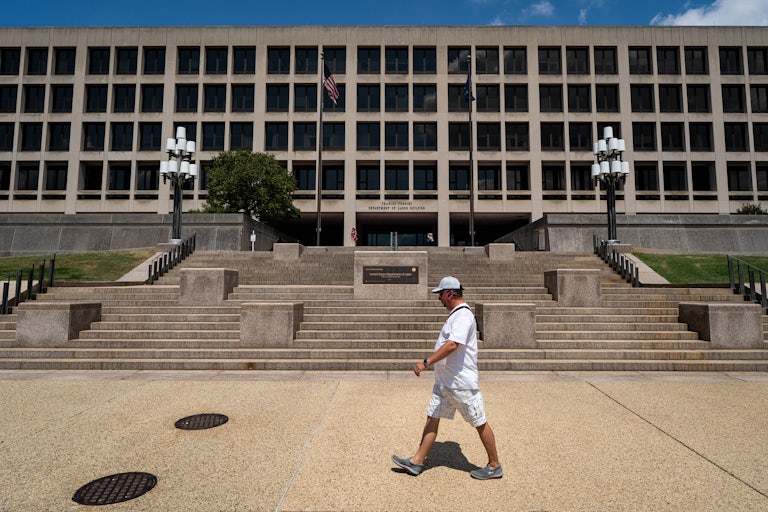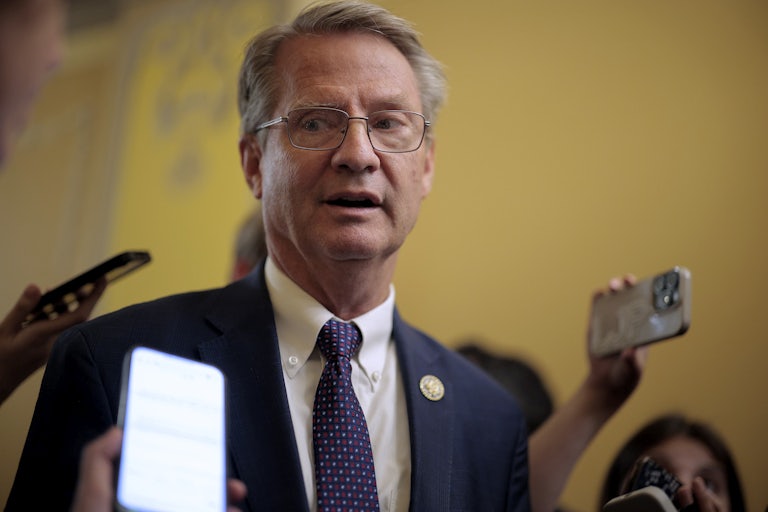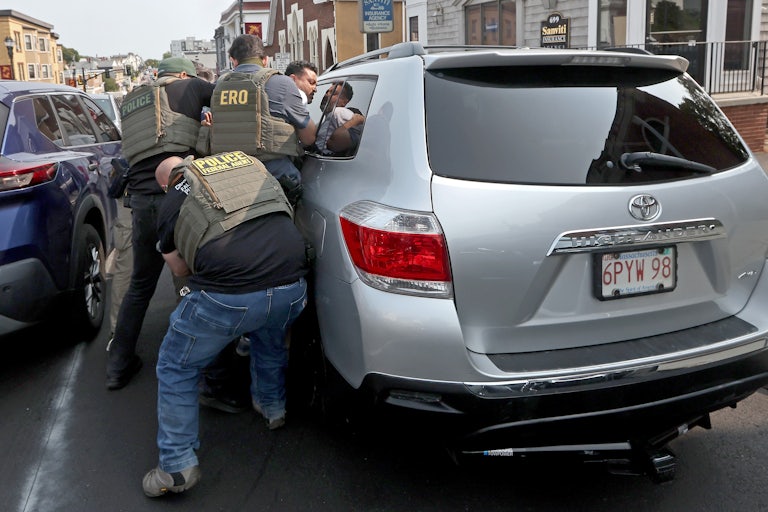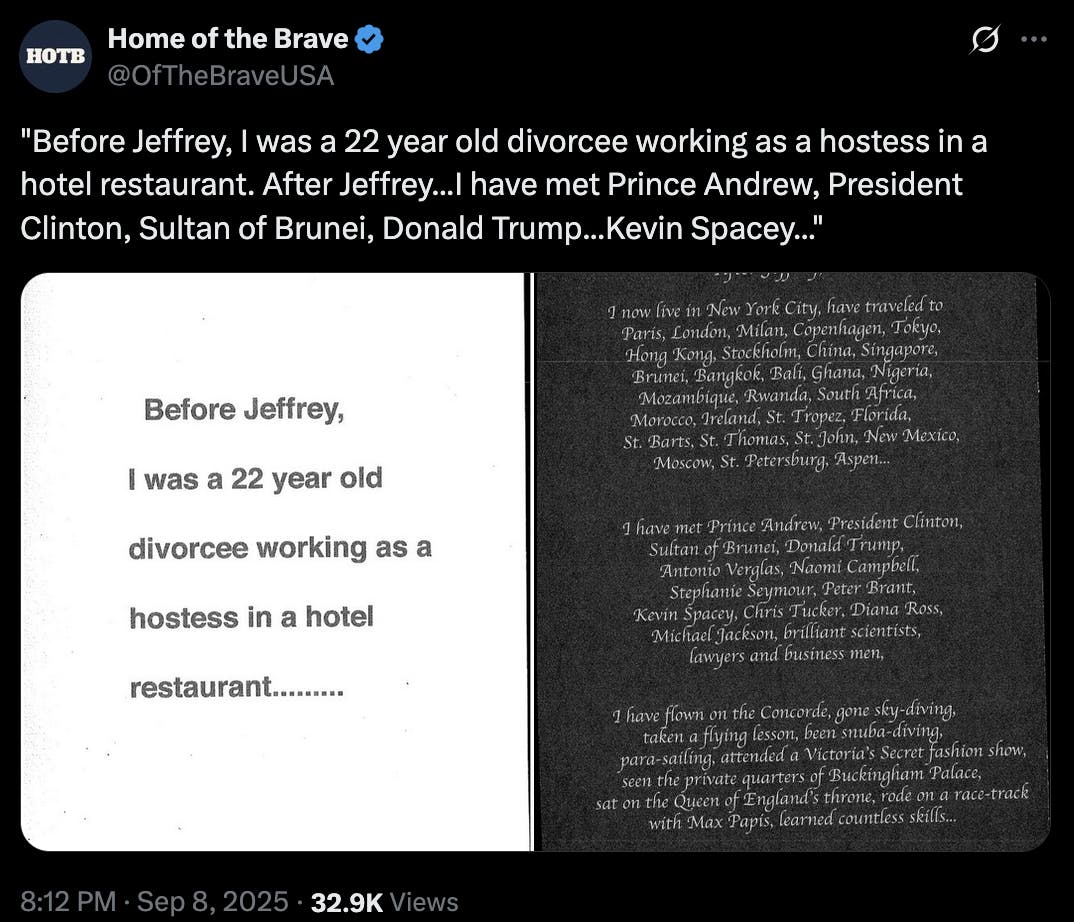In Disturbing Move, Trump’s DOJ Demands Voting Data From States
It’s part of a sweeping project led by election deniers. Voting rights advocates are alarmed.
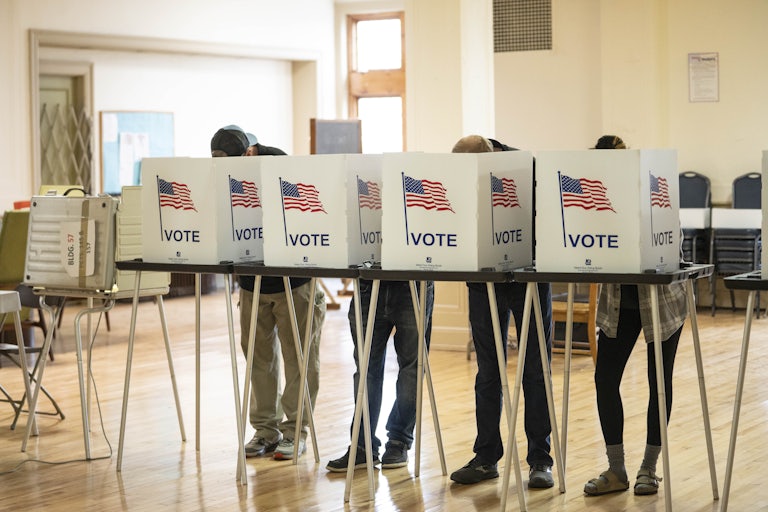
President Donald Trump’s administration wants the last four digits of every voter’s Social Security number—as part of its sweeping efforts to compile a federal voting database, The New York Times reported Tuesday.
Michael Gates, deputy assistant attorney general in the Department of Justice’s recently overhauled civil rights division, told top state elections officials in a private meeting that he planned to request information from all 50 states. Specifically, he wanted the last four digits of voters’ SSNs, so they could be cross-referenced with a database of noncitizens at the Department of Homeland Security.
The administration could use the database to investigate claims of noncitizen voting, an obsession of Trump and other Republicans who claimed the 2020 election had been stolen through massive voter fraud.
In reality, the only ones concocting a scheme to fake votes in that election were in Donald Trump’s camp.
The issue of noncitizen voting remains small to nonexistent. In 2016, noncitizen votes accounted for just 0.0001 percent of the votes cast, according to the Brennan Center for Justice. One might notice that Trump’s complaints about noncitizen voting evaporated after his victory last November. However, Trump seems to have revived his obsession ahead of the midterm elections.
The DOJ has already sent requests to 16 Republican-led states and at least 17 Democrat-led states or swing states, including Pennsylvania, Nevada, New York, and Wisconsin. Some states, like North Carolina, were approached by the DOJ and DHS with an offer to simply use the federal SAVE database to run their voter list.
But such a sweeping request for personal information may not be legal, according to Justin Levitt, a former Justice Department official and election law expert at Loyola Marymount University’s law school. He said that it could potentially violate the 1974 Privacy Act, which requires agencies to be careful in their handling of sensitive information.
Across the country, both Democratic and Republican leaders have refused to hand over information. California’s Secretary of State Shirley Weber said her office was “not obligated to follow along” with Trump’s efforts to “conscript states to carry out nonstatutory policy priorities of the president.” Al Schmidt, the Republican secretary of the Commonwealth of Pennsylvania said the requests “represent a concerning attempt to expand the federal government’s role in our country’s electoral process.”
Earlier this month, a South Carolina local judge blocked the DOJ’s request for the “full name, date of birth, residential address, his or her state driver’s license number, or the last four digits of the registrant’s social security number” of every South Carolina voter, after one woman sued, saying it would violate citizens’ constitutional privacy rights.
The project, led by election deniers, has also raised serious concerns that the Trump administration could use the database to fuel claims of voter fraud in future elections.
“The biggest structural concern is using this information in an irresponsible manner to fuel the narrative that something is amiss in any election in which the preferred outcome is not the actual outcome,” Sophia Lin Lakin, the director of the Voting Rights Project at the American Civil Liberties Union, told the Times.



